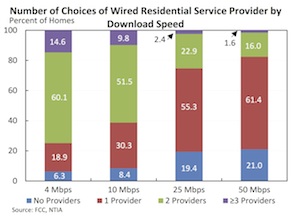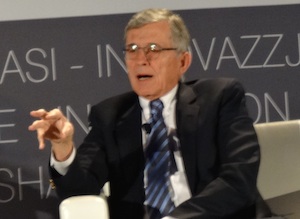Obama criticises lack of broadband competition in Iowa speech
U.S. president Barack Obama just wrapped up a 20 minute speech that focused on community broadband. He pretty much stuck to the talking points released by the white house yesterday. He talked about tens of millions of U.S. homes that only have 1 high speed ISP available, if they have options any at all, putting them “at the whim of whatever broadband provider is around”. Obama’s solution is to offer cities technical assistance, implement previously approved rural broadband grant and loan programs, ask the FCC to preempt state restrictions on municipal broadband and telling federal agencies to get rid of unnecessary regulations.





